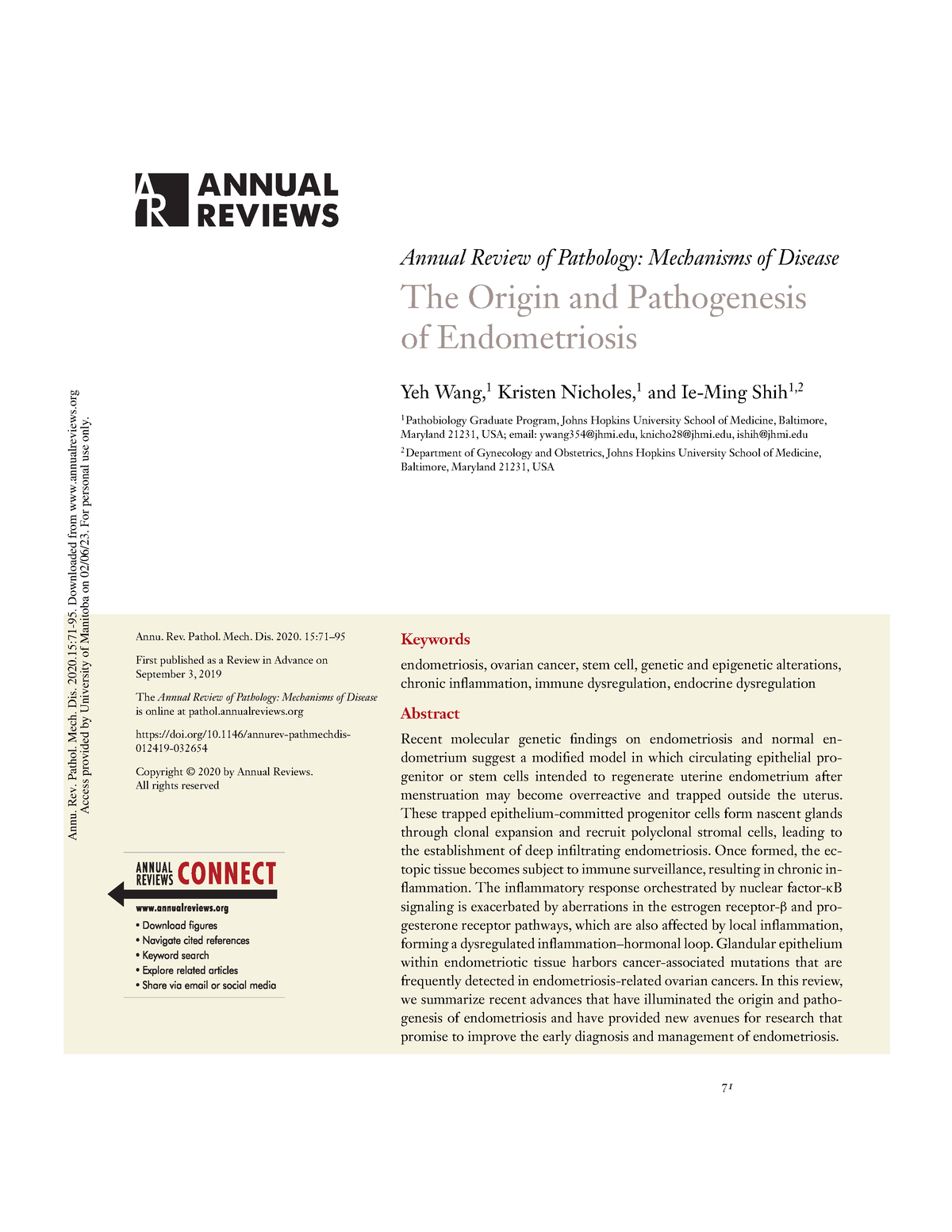微生物对人类代谢组的贡献:对健康和疾病的影响。
IF 28.4
1区 医学
Q1 PATHOLOGY
Annual Review of Pathology-Mechanisms of Disease
Pub Date : 2020-01-24
DOI:10.1146/annurev-pathol-020117-043559
引用次数: 105
摘要
人类的胃肠道是大量微生物的家园。这些微生物采用独特的策略在这种主要的厌氧环境中捕获能量。在分解饮食和宿主来源的底物的过程中,肠道微生物群产生一系列代谢产物,这些产物在肠道中积累到高水平。越来越多的研究表明,这些化学物质通过作用于胃肠道内的细胞或进入循环并在体内远端部位发挥作用来影响宿主生物学。鉴于肠道微生物群的高度功能多样性和我们所消耗的各种饮食,我们体内微生物群衍生分子的曲目在个体之间差异很大。因此,我们肠道中的微生物和它们产生的代谢最终产物代表了一种表型杠杆,我们可以通过控制这种杠杆来开发个性化医疗的新疗法。在这里,我们回顾了目前对胃肠道微生物如何在我们的肠道和体内循环的分子中做出贡献的理解。我们还强调了这些分子如何影响宿主生理的例子,并讨论了控制其产生以促进人类健康和治疗疾病的潜在策略。《病理学年度评论:疾病机制》第15卷预计最终在线出版日期为2020年1月24日。修订后的估计数请参阅http://www.annualreviews.org/page/journal/pubdates。本文章由计算机程序翻译,如有差异,请以英文原文为准。
Microbial Contribution to the Human Metabolome: Implications for Health and Disease.
The human gastrointestinal tract is home to an incredibly dense population of microbes. These microbes employ unique strategies to capture energy in this largely anaerobic environment. In the process of breaking down dietary- and host-derived substrates, the gut microbiota produce a broad range of metabolic products that accumulate to high levels in the gut. Increasingly, studies are revealing that these chemicals impact host biology, either by acting on cells within the gastrointestinal tract or entering circulation and exerting their effects at distal sites within the body. Given the high level of functional diversity in the gut microbiome and the varied diets that we consume, the repertoire of microbiota-derived molecules within our bodies varies dramatically across individuals. Thus, the microbes in our gut and the metabolic end products they produce represent a phenotypic lever that we can potentially control to develop new therapeutics for personalized medicine. Here, we review current understanding of how microbes in the gastrointestinal tract contribute to the molecules within our gut and those that circulate within our bodies. We also highlight examples of how these molecules affect host physiology and discuss potential strategies for controlling their production to promote human health and to treat disease. Expected final online publication date for the Annual Review of Pathology: Mechanisms of Disease, Volume 15 is January 24, 2020. Please see http://www.annualreviews.org/page/journal/pubdates for revised estimates.
求助全文
通过发布文献求助,成功后即可免费获取论文全文。
去求助
来源期刊
CiteScore
62.60
自引率
0.00%
发文量
40
期刊介绍:
The Annual Review of Pathology: Mechanisms of Disease is a scholarly journal that has been published since 2006. Its primary focus is to provide a comprehensive overview of recent advancements in our knowledge of the causes and development of significant human diseases. The journal places particular emphasis on exploring the current and evolving concepts of disease pathogenesis, as well as the molecular genetic and morphological changes associated with various diseases. Additionally, the journal addresses the clinical significance of these findings.
In order to increase accessibility and promote the broad dissemination of research, the current volume of the journal has transitioned from a gated subscription model to an open access format. This change has been made possible through the Annual Reviews' Subscribe to Open program, which allows all articles published in this volume to be freely accessible to readers. As part of this transition, all articles in the journal are published under a Creative Commons Attribution (CC BY) license, which encourages open sharing and use of the research.

 求助内容:
求助内容: 应助结果提醒方式:
应助结果提醒方式:


